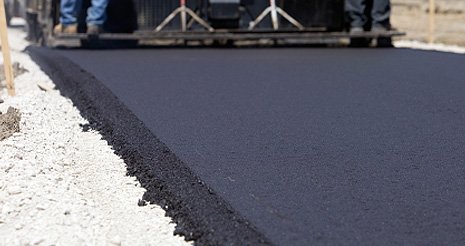Is asphalt a byproduct of crude oil?

Asphalt, a ubiquitous material used in road construction and various other applications, has a complex origin rooted in the world of petrochemicals. It is often perceived as a byproduct of crude oil, but this association is not entirely accurate. In this comprehensive exploration, we will delve into the intricate relationship between asphalt and crude oil, dissecting the processes involved in the production of asphalt and its role in the construction industry.
Understanding Crude Oil
To grasp the connection between asphalt and crude oil, it is essential to first understand the composition of crude oil. Crude oil, also known as petroleum, is a naturally occurring, complex mixture of hydrocarbons. It is extracted from underground reservoirs, refined, and processed into various petroleum products, including gasoline, diesel fuel, jet fuel, lubricants, and yes, asphalt.
Crude oil is primarily composed of hydrocarbons, which are molecules made up of hydrogen and carbon atoms. These hydrocarbons come in various forms, from simple alkanes to more complex compounds like aromatics and asphaltenes. The composition and proportions of these components in crude oil can vary widely depending on the source.
Is Asphalt a Byproduct of Crude Oil?
Asphalt, while derived from crude oil, is not a direct byproduct of the refining process. Instead, it is produced by the controlled distillation of a specific fraction of crude oil known as “residuum.” This fraction is left behind after the initial refining steps produce lighter products like gasoline and diesel fuel.
The Process of Making Asphalt
- Crude Oil Refining: Crude oil is subjected to a refining process in which it is heated and distilled into different fractions based on their boiling points. The lighter fractions, which have lower boiling points, are separated early in the process and used to produce gasoline, kerosene, and diesel fuel.
- Residuum Fraction: The residuum fraction, often referred to as “resid” or “heavy oil,” is the part of crude oil that remains after the distillation of lighter fractions. This residue has a higher boiling point and consists of heavier hydrocarbons, including asphaltenes.
- Air Blowing: The residuum is subjected to a process called “air blowing.” This involves passing air through the residuum at high temperatures. The oxygen in the air reacts with the asphaltenes, causing molecular changes that transform the heavy, viscous material into asphalt.
- Blending and Modification: Depending on the intended use of the asphalt, various additives, or “cutbacks,” such as solvents or oils, can be mixed with the air-blown asphalt to adjust its properties, including viscosity and softening point.
Types of Asphalt
Asphalt is available in several forms, each with specific characteristics tailored to different applications. The primary types of asphalt include:
- Hot Mix Asphalt (HMA): HMA is the most common type of asphalt used for road construction. It is a blend of asphalt cement (derived from crude oil) and aggregate materials. The mixture is heated and applied to the road surface when in a liquid state. Once cooled, it forms a solid, durable road surface.
- Warm Mix Asphalt (WMA): WMA is a variation of HMA that is produced at lower temperatures, making it more environmentally friendly and energy-efficient.
- Cold Mix Asphalt: Unlike HMA and WMA, cold mix asphalt does not require heating during the production process. It is often used for temporary road repairs and patching.
- Cutback Asphalt: Cutback asphalt is a form of asphalt that includes a solvent, typically kerosene or diesel fuel, to reduce its viscosity. It is used in applications where rapid curing is necessary, such as chip sealing and patching.
- Emulsified Asphalt: Emulsified asphalt is produced by suspending tiny asphalt droplets in water. This type of asphalt is used for applications like slurry sealing, tack coating, and soil stabilization.
Environmental and Economic Impact
The production and use of asphalt have both environmental and economic implications. On one hand, the extraction and processing of crude oil have well-documented environmental consequences, including greenhouse gas emissions, habitat disruption, and the risk of oil spills. Furthermore, asphalt plants can emit pollutants and can impact local air quality.
On the other hand, asphalt is a highly recyclable material. Old asphalt can be reclaimed and reused in new asphalt mixtures, reducing the demand for new crude oil-derived asphalt. Recycling asphalt not only conserves resources but also decreases the carbon footprint associated with the production of new asphalt.
Conclusion
In summary, asphalt is not a direct byproduct of crude oil but is instead derived from a specific fraction of crude oil through a refining and processing method known as air blowing. This process transforms the heavy components of the residuum fraction into the versatile material known as asphalt. It’s important to recognize that while asphalt is a critical component of road construction, its production and use have environmental and economic implications. Efforts to minimize the environmental impact of both crude oil extraction and asphalt production, as well as the recycling of old asphalt, are essential for a sustainable and eco-friendly future in the construction industry.
Contact us
 Phone Call |
 Text Message |
 |







